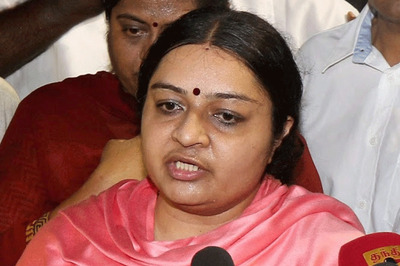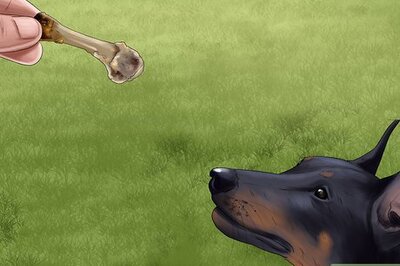
views
Two years since liquor was banned in Bihar, the Nitish Kumar government now plans to ban khaini or chewing tobacco as well.
The state health department has written to the central government requesting to notify khaini as a food product and once it is notified by the Food Safety and Standards Authority of India (FSSAI), the state government will be free to impose a complete ban on it on health grounds.
Apart from the Bihar government, SEEDS (Socio-Economic and Educational Development Society) has also written to the health department to include khaini as a food product under FSSAI. As per the Global Adult Tobacco Survey-2 of 2016-17, 25.9 percent of the state’s population use tobacco in different forms and 20.4 percent of them are addicted to chewing tobacco.
Even a few political leaders in Bihar are addicted to khaini, the most famous being RJD chief Lalu Prasad Yadav, who is known for chewing khaini. Reports suggest that Lalu used to get home cooked food and khaini from Patna when he was in jail the last time, serving the fodder scam sentence.
Speaking to News18, Bihar Principal Secretary (Health) Sanjay Kumar confirmed that he has written a letter to the central government. “Khaini is not included in the list of food products by FSSAI and once it is added, it will be easier for us to impose a complete ban on it.
"Every fifth person in Bihar consumes raw tobacco. We have rules that govern tobacco use in the form of cigarettes but consumption of khaini is an area that needs attention," he said.
Khaini farmers are bound to be adversely affected by the ban once it’s imposed.
Bihar is the sixth largest tobacco producing state in the country. Besides Samastipur, khaini is also grown in Vaishali, Muzaffarpur, Darbangha and Sitamarhi.
The tobacco plant once cut, is dried and sold to traders from Assam, West Bengal, Uttar Pradesh, Jharkhand and Madhya Pradesh. Depending on the quality, it is sold for anything between Rs 70 to 200 per kilogram.
In October 2013, the Nitish government announced a tax exemption on khaini after demands made by farmers who told the chief minister that their produce was being seized and fines and taxes being imposed on them.
In 2014, when Jitan Ram Manjhi was the chief minister, he hiked the tax on tobacco products by 30 percent, but khaini was left untouched keeping the vote bank in mind.
Tobacco is a major cash crop in Bihar and banning its sale will have a direct impact on the farmers.
Tobacco farmers have been voting for JD(U) and NDA allies while the ban may force them to shift towards RJD.
Bihar Agriculture Minister, Prem Kumar told News18, “If the ban is imposed, the ministry will make alternate arrangements for the farmers. Their source of income won’t be hit and they will not suffer.”
The JD(U) government has had to resist immense pressure from mainstream media and studies in the past while implementing the liquor ban. Sale of ghutka and pan masala, too, is banned in Bihar since May 2016.




















Comments
0 comment